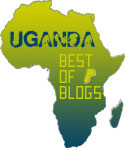Ben Wikler: Changing the World of Changing the World
Ben Wikler of Avaaz.org is at the Berkman Center today to talk about new models of online organizing.
Wikler begins by explaining net-centered vs. broadcast-centered online activism. The Internet is a little bit like the Brazilian butterfly flapping its wings, causing a thunderstorm in Belgium — except we are all butterflies, and it can be hard to tell how we can act together to (for example) bring rain to the hypothetically drought-stricken Belgium.
Netcentric Activism
One method is the "Grass Mud Horse" — a grassroots protest against Internet censorship in China. Aggregated actions of individual citizens can be channeled for strategic purposes, but's a bit like a shotgun blast vs. a laser beam. It can be hard to focus on your target or to deliver a clear message.
Broadcast-Centered Online Activism
Avaaz.org sends specific, targeted e-mails to different groups of activists. The key to making this work is to incorporate dialogue: there's generally a broad consensus on the need for solutions to problems like climate change, human rights abuses and political crises (even in the Israel/Palestine conflict, "most people support a two-state solution," Wikler says). Avaaz works to "give global public opinion teeth" by building a community. They then track the numerical and qualitative responses to their campaigns throughout this community, allowing them to modify their message as necessary.
If the Internet is a series of tubes, global civil society is a series of tubs, says Wikler — each issue or campaign (Burma, climate change, Zimbabwe) has its own group of interested people. The Internet allows us to connect these tubs to tubes, channeling the water to the biggest fires.
Avaaz is intentionally multi-issue. Wikler's found that the same people who care about what's happening in Zimbabwe are likely to care about what's happening in Sri Lanka. Avaaz looks for ways to channel these common interests into actionable items that can be acted on quickly by members of the larger Avaaz community.
What is Avaaz?
Lightning rod: Avaaz's method allows the channeling of "amorphous public concern" into targeted action.
Battery: Avaaz allows you to build a movement and then tap it for future issues — people concerned about the political crackdown in Burma are more likely to care about the cyclone that came later. Avaaz stores this communal energy, making it easy to build support for campaigns without starting from scratch.
SWAT team: Avaaz operates in a very targeted way. Some of Avaaz's partners can't be political for fear of putting their in-country staff at risk, but Avaaz has the freedom to criticize.
Stem cell: multiple communities can build off of Avaaz.
Burma campaigns
During the fall 2007 crackdown in Burma, 850,000 people got involved through Avaaz. Avaaz presented a petition to the UN Security Council, but that was just the beginning. Its European members contacted the European Parliament; its members in Singapore asked the foreign minister to be more harsh on the junta; other groups acted in other targeted ways. Avaaz was able to work with established groups to get guidance about what would be effect, then to bring in a huge number of concerned people from around the globe who wanted to help but didn't know how.
When the cyclone hit Burma the following spring, Avaaz was able to partner with in-country monks who were part of the relief efforts.
Challenges
Because everything is mediated through the staff, there's a limit on the number of campaigns Avaaz can run. They also have trouble tapping existing expertise. There has to be a way to open things up so Avaaz members can point Avaaz to local crises while also maintaining some sort of filter to make sure that campaigns retain a high level of quality and are relevant to members.
Wikler is afraid that opening up a dialogue may inundate Avaaz members with too many e-mails, drowning out important issues and overwhelming those who only have a small amount of time to donate to any particular cause.
Avaaz has started small but high-volume local groups to try to manage some of this, starting a small campaign and then expanding it to other members after it is established.
Another idea is to run public trainings, teaching people how to do online activism, then let them submit campaign ideas, which will then be rated by other members before being acted on by Avaaz as an organization.
Wikler believes that online activism is still in its infancy — he says there's a global gap in the models that currently exist. He closes by saying we're all in one big tub and asks if we have any ideas for new models of online activism.
Questions
Q: Has anyone ever attempted to use Avaaz's tools for a purpose the organizational staff disagreed with?
A: People wanted to boycott the Olympics because of Chinese censorship, but Avaaz felt this would backfire within China. Wikler spoke with activists in Hong Kong, who said China would respond by tightening control even further.
Q from Jonathan Zittrain: How is Avaaz governed? Are governance issues a distraction? Does Avaaz aspire to become more organically governed (like, say, Wikipedia)?
A: Avaaz is a small group of people in a huge room of noisy people. Unlike a government, it's completely voluntary. Instead of speaking on behalf of all 3.5 million members, Avaaz only speaks on behalf of those who participate in any particular campaign. It's a "horizontal culture" — the executive director only greenlights campaigns that already have support from a random sample of members, and Avaaz is 80 percent funded by its members. Avaaz wants to avoid being directed by either the whims of the staff or the whims of a small group of members.
Q from Jonathan Zittrain: Might be interesting to use multiple approaches to issues, letting people choose multiple ways to be involved in multiple campaigns. Either that or giving people multiple ways to participate in choosing campaigns, so you can see what appeals to people with various amounts of free time.
A: Avaaz does some of this. They responded to the economic crisis with a long poll open to all members that generated options for action and let members vote these up or down. This resulted in a package of action items, some of which Avaaz staff wouldn't have thought of, that people could pick and choose from.
Q: How do you define action? Just writing letters to politicians and sending money? What about collecting best practices that can be adapted for individual causes? We give away our power when we say that petitioning politicians is the best we can do.
A: What happens on the Internet often stays on the Internet, and using online activity to unleash offline activity is something Avaaz is working hard on. Many of the issues on which Avaaz works can't be affected by individual actions that don't involve government — such as carbon emissions. Avaaz is about helping people to find ways to take action together when they know that taking action alone isn't enough — looking for the domino effect.
Q: When will Avaaz have achieved its goal? What metrics are being used to show the community the progress that has been made?
A: Avaaz exists in moments and particular campaigns. It doesn't have a manifesto — its brand is "deployed" on behalf of the people who are taking action. In a world this complex, there aren't any good yardsticks to measure success. The ultimate metric is communicating with your members to let them know how things turned out.
Q: It seems like you're focusing on short-time action that can make a difference on a specific issue, rather than long-term sustained action.
A: In some senses that's true. Each individual development (a march, a petition) is somewhat disconnected, but over time the number of people involved in a campaign (supporting democracy in Zimbabwe, for example) grows and can be remobilized — it's like a snowball.
Q: What percentage of Avaaz's actions is based on global public opinion, and what percentage is focused on other things? It's easy to get "petition overload."
A: Maybe half and half, or closer to 40 percent opinion. Avaaz does a lot of funding public opinion polls, advertising campaigns, support for Internet access — moving more towards these types of things: "activity beyond the outcry." But more people are willing to sign a petition than to donate, at a ratio of 100:1.
Q: How did you pick your languages?
A: Political activism in multiple languages involves more than just translation — you have to shift your content into the political idioms of those languages. Avaaz is working on a Farsi language site right now. They have to figure out how to expand without becoming a translation organization.
Q: How often do members reject an idea from Avaaz?
A: Can't think of a time when something's gotten strong support in a test but not in the general membership. Around 30-50 percent of tested campaigns don't pass the threshold, though. The rate has improved over time, as staff become more familiar with the work and with the members.
Question from Wikler
What's the most convenient way for you tell Avaaz about an issue you want them to work on? Contact Ben [at] avaaz.org.
Labels: berkman, digital activism, human rights, technology














